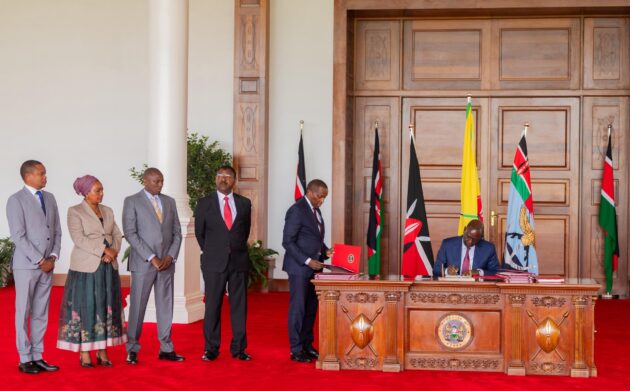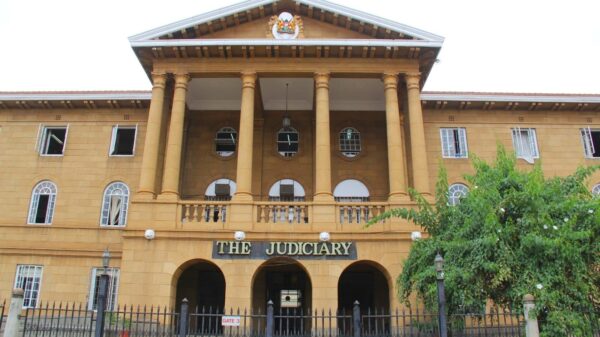NAIROBI, Kenya, June 17 – President William Ruto assented to the Anti-Money Laundering and Combating of Terrorism Financing Laws (Amendment) Bill, 2025 at State House Nairobi on Tuesday.
He also signed into law the Insurance Professionals Bill (National Assembly Bills No. 13 of 2024).
The Anti-Money Laundering and Combating of Terrorism Financing legislation is designed to strengthen Kenya’s framework for tackling money laundering, terrorism financing, and proliferation financing.
Its enactment represents a decisive step in bolstering the country’s financial system against illicit financial flows.
The amended law seals long-standing loopholes that have enabled the misuse of property transactions and shell companies for illegal financial activities.
These legal reforms reaffirm Kenya’s standing as a leader in financial integrity and enhance the country’s credibility in the global regulatory regime.
Initially passed on April 16, 2025, the Bill was returned to Parliament by President Ruto with reservations.
It was passed a second time by the National Assembly on June 3, 2025, with amendments that fully addressed the President’s concerns.
Ten Acts of Parliament have been amended to address technical compliance deficiencies flagged by the Eastern and Southern Africa Anti-Money Laundering Group (ESAAMLG) and the Financial Action Task Force (FATF).
The amended laws are: The Proceeds of Crime and Anti-Money Laundering Act (Cap. 59A); the Prevention of Terrorism Act (Cap. 59B); the Betting, Lotteries and Gaming Act (Cap. 131); the Retirement Benefits Act (Cap. 197); the Mining Act (Cap. 306); the Sacco Societies Act (Cap. 490B); the Accountants Act (Cap. 531); the Estate Agents Act (Cap. 533); the Certified Public Secretaries of Kenya Act (Cap. 534); and the Public Benefits Organizations Act (No. 18 of 2013).
The introduction of enhanced regulatory clarity and oversight in sectors such as real estate and mining is expected to significantly boost investor confidence and attract foreign direct investment.
Additionally, stronger regulation will help broaden the tax base and support domestic revenue mobilisation by formalising more players in the economy.
On its part, the Insurance Professionals Bill establishes a comprehensive legal framework to regulate the insurance industry.
It aims to improve service standards, strengthen accountability, and address professional misconduct in the sector.
This legislation introduces a bottom-up registration regime for insurance professionals, heralding a new era in insurance regulation.
The law mandates the formation of a Registration Committee responsible for receiving applications, issuing practising certificates, monitoring compliance with quality assurance standards, and recommending disciplinary enquiries when necessary.
It also establishes the Insurance Institute of Kenya, governed by a council as the lead professional organisation overseeing the conduct and standards of insurance practitioners.
Furthermore, the Insurance Professionals Examinations Board will be responsible for administering professional examinations.
The legislation clearly outlines acts constituting professional misconduct and creates a Disciplinary Committee to deal with related cases.
Overall, the law enhances standards in the profession, encourages continuous professional development, improves public trust, addresses consumer grievances, protects policyholders from malpractice, and reinforces the sector’s credibility in the financial services industry.
At the signing were National Assembly Speaker Moses Wetang’ula, Majority Leader Kimani Ichung’wah, Solicitor-General Shadrack Mose, and Finance and National Planning Committee Chairperson Kuria Kimani, among other leaders.


































